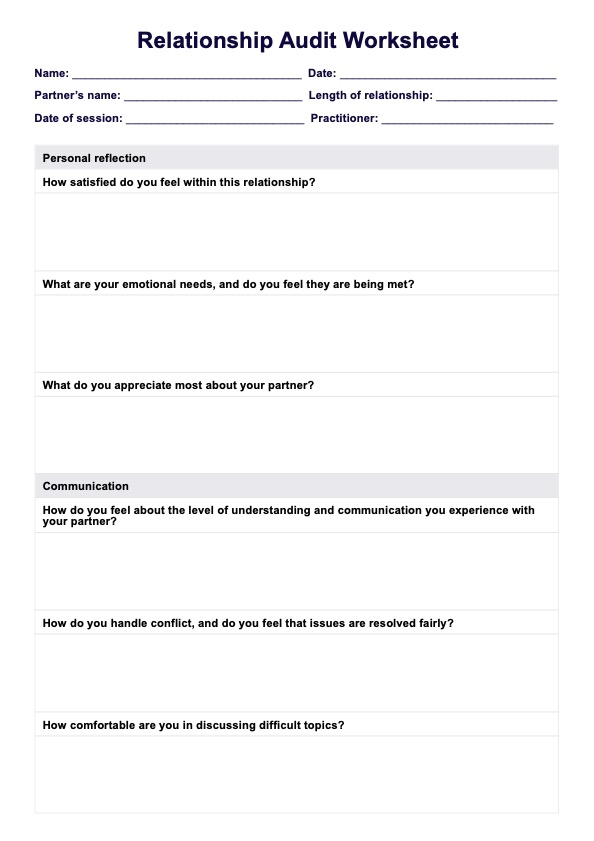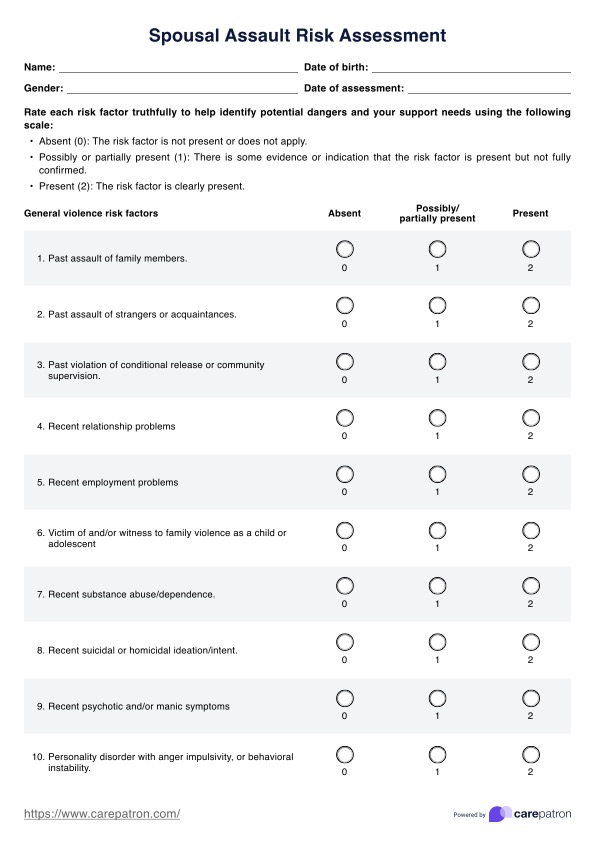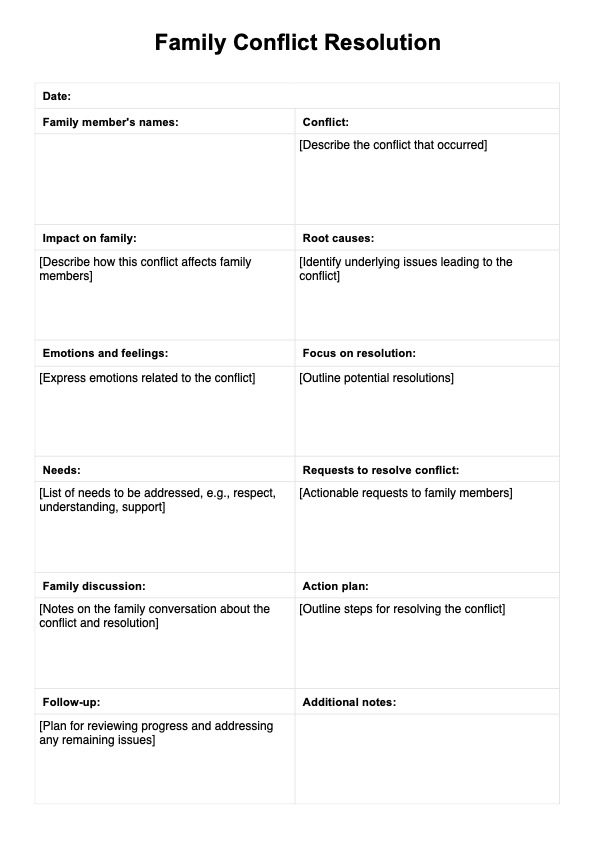Relationship Journaling Prompts Handout
Use the Relationship Journaling Prompts Handout to help you guide clients in exploring emotions, improving communication, and enhancing relationships.


What is relationship journaling?
Relationship journaling can be an excellent way for couples looking to strengthen their bond. It gives partners a chance to reflect on their thoughts and feelings, which can lead to real personal growth in a romantic relationship.
As a therapist, you can suggest this practice, especially when couples are facing challenges or trying to cultivate a more healthy relationship. Journaling allows each person to express how they truly feel, helping to improve communication and deepen emotional intimacy. Using relationship journal prompts, couples can explore a range of topics, from discussing goals and deal breakers to reflecting on what they appreciate about each other. This process can spark meaningful conversations that bring them closer together.
Relationship Journaling Prompts Handout Template
Relationship Journaling Prompts Handout Example
How does our Relationship Journaling Prompts Handout work?
Our Relationship Journaling Prompts Handout aims to help couples engage in meaningful reflection and deepen their romantic relationships. Just follow these steps to use this resource:
Step 1: Download the template
Begin by opening the Relationship Journaling Prompts Handout template by clicking "Use template" on the Carepatron app. You can make a free account so that you can customize the template. On the other hand, you can also just download a non-customizable but still fillable and printable PDF by clicking "Download."
Step 2: Choose a comfortable setting
Encourage your client/s to find a quiet and comfortable space where they can focus without distractions. This could be at home, during your sessions, or anywhere they feel at ease. They must feel relaxed so they can open up and engage fully with the prompts.
Step 3: Respond to the prompts
With many prompts available, you can either let clients choose a specific number that resonates with them or assign prompts tailored to your discussion goals. Instruct couples to take their time responding to the journal prompts, allowing for thoughtful reflection. On a separate sheet, they should write their thoughts and feelings honestly, aiming for clarity and openness. After they complete the prompts, suggest that they share what they wrote down with each other to encourage communication and connection.
Step 4: Discuss during sessions
During scheduled sessions, provide an opportunity for participants to discuss their reflections, explore any challenges, and celebrate their insights together. Facilitating this can guide participants toward self-reflection and healthy relationships.
Sample list of relationship journaling prompts
We understand that it can take time to come up with the right prompts, especially if you don't have them ready for the session. That's why we've put together this sample list to make it easier for you and your clients to engage in meaningful discussions.
- What does a healthy relationship mean to you?
- Reflect on your most meaningful romantic relationship so far. What made it special?
- How do you imagine your communication evolving in your romantic relationship?
- What are your personal signs of emotional intimacy?
- Write about a recent moment of personal growth in your relationship.
- What can you do today to deepen emotional intimacy with your partner?
- Describe a shared goal you and your partner have for the future.
- Write about a time when you felt seen and heard by your partner.
- Describe your top three deal breakers in a relationship.
- What does your ideal relationship look and feel like?
These are just ten prompts, but we have a total of 30 carefully prepared in our handout to enrich your sessions further. Feel free to explore them and find the ones that resonate best with you and your clients.
Benefits of this handout to couples therapists
The Relationship Journaling Prompts Handout is a great resource for couples therapists seeking to facilitate meaningful conversations and promote growth in their clients. Here's how it can benefit your practice:
It provides structured guidance.
The handout offers a convenient way to guide couples through self-reflection. It allows you to focus on specific themes or prompts, helping clients gain insight into their relationship dynamics.
It enhances therapeutic discussions.
Using the prompts in therapy sessions can stimulate deeper conversations about feelings, needs, and expectations. This not only encourages partner support but also helps you model effective communication strategies that couples can use outside of sessions.
It facilitates relationship growth.
Because the prompts are varied, they help couples cover various aspects, like clarifying their values and aspirations and guiding them toward their ideal relationship. By encouraging an environment of mutual respect and understanding, you can help clients build stronger connections and improve their overall mental health.
Commonly asked questions
Start by openly communicating with your partner about the issue, expressing your feelings, and actively listening to their perspective. Working together on a solution and considering relationship journaling can help clarify thoughts and foster understanding.
Journaling prompts for relationship issues may include questions like, "What are my feelings about this situation?" and "What can I do to improve communication with my partner?" These prompts can guide couples in exploring their challenges and finding solutions together.
The time it takes for relationship journaling varies, but dedicating 15 to 30 minutes per session can be effective. Focusing on quality over quantity is essential.



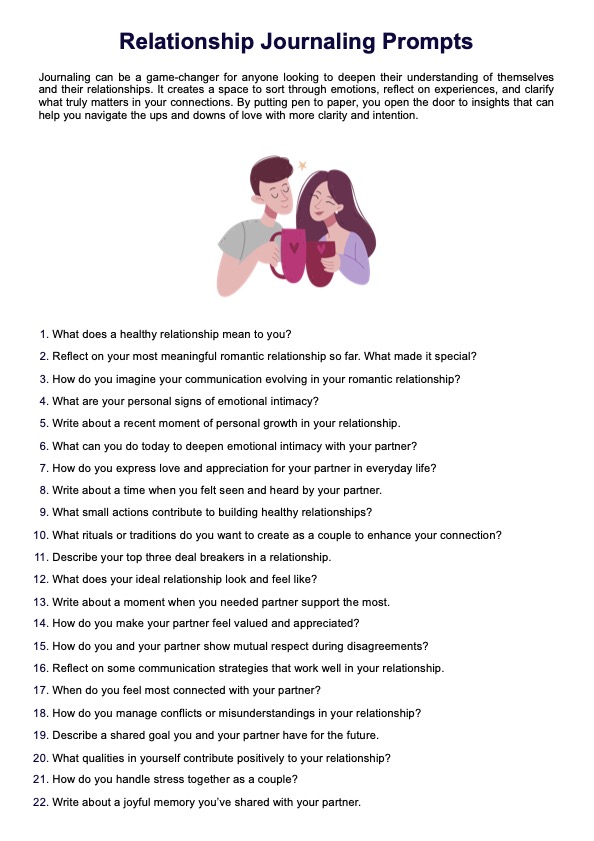



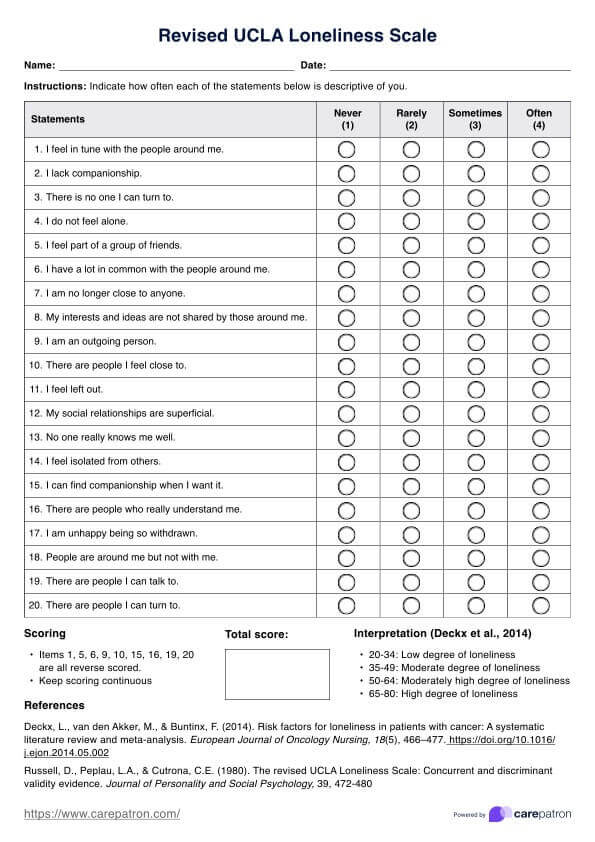












-template.jpg)


